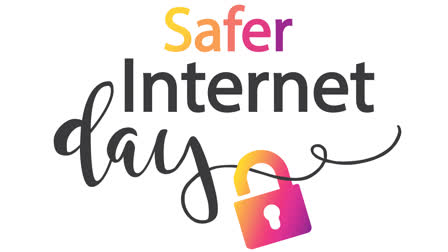Hyderabad:Safer Internet Day, observed annually on February 6, is a global initiative dedicated to creating a safer and more responsible online environment, particularly for young individuals.
Widespread use of Internet-In our digitally connected world, where over 66 percent of the global population, totaling 5.35 billion users, utilises the Internet, the need for online safety is paramount. India, with 52.4% of its population using the internet, exemplifies the widespread impact of this global phenomenon.
History-Safer Internet Day originated in 2004 as an initiative of the EU Safe Borders project and was later adopted by the Insafe network in 2005. Currently organized by the Insafe network with support from the European Commission, the day has transcended its original geographic boundaries and is now celebrated in approximately 190 countries and territories worldwide.
Theme-The theme for the 21st edition, "Together for a Better Internet," encourages people worldwide, including children, parents, educators, policymakers, and industry professionals, to unite to create a safer online environment.
Significance-This significant day aims to raise awareness about online safety issues, including cyberbullying, online grooming, and sexting. It emphasizes promoting positive online behavior and encourages critical thinking about the information shared on the internet.
Why SID-Safer Internet Day is particularly crucial in addressing the escalating online risks faced by young people, such as cyberbullying, digital identity theft, and cyber-attacks. It serves as a reminder to adopt responsible online practices, promote awareness, and encourage respectful interactions on the internet.
Key Facts About Safer Internet Day-
- The day was originally initiated by European nations but it is also observed outside Europe and is now a globally marked occasion.
- In 2009, Safer Internet Day Committees were introduced, to connect across different countries and extend the network.
- There are now more than 160 SID Committees across the world working with the Safer Internet Day Coordination Team, which is based at the EU headquarters in Brussels.
- SID has committees in Africa, Asia, Europe, North America, Oceania, and South America.
- Insafe is a European network of Safer Internet Centres (SICs). Every national Centre implements awareness and educational campaigns, runs a helpline, and works closely with youth to ensure an evidence-based, multi-stakeholder approach to creating a better internet.
The significance of Safer Internet Day lies in its role as a vital reminder of the potential risks associated with the internet, promoting responsible online practices, and calling for collective action to address online safety challenges. This year's 21st edition reflects the strategy for a better internet for kids (BIK+), aiming to create an online environment that protects, empowers, and respects every child in Europe.
How Can You Stay Safe Online? Dos & Don'ts:
Dos:
- Create a strong and easy-to-remember password.
- Think carefully about the information shared on online and its possible consequences. You can change the privacy settings on your social media platforms to help you control who sees your information – including your locations.
- Watch out for links and attachments before clicking on them. Some spam emails may contain malicious links or attachments that can steal personal information.
- Enable Two-Factor Authentication Whenever Possible.
- Be careful what you download in your system, check the authenticity.
- Delete Old Social Media Accounts That You No Longer Use.
- Review Your Privacy Settings for Your Website or Remote Employees.
- Use a good antivirus and keep it updated.
- Check if the site you are using is secure.
Don'ts:
- Don’t use the same password for multiple sites.
- Don’t share your passwords with anyone.
- Don't stick to a single email account. Use different emails for unofficial work, don't share official email with unverified sites.
- Don’t store personal card details on websites.
Observing Safer Internet Day involves expanding online security, raising awareness, educating individuals about cyberbullying, and having open conversations about internet use and its risks. Safer Internet Centres, Committees, and supporters globally organise events to commemorate this day, emphasising the collective effort required to create a safer online environment for everyone.
